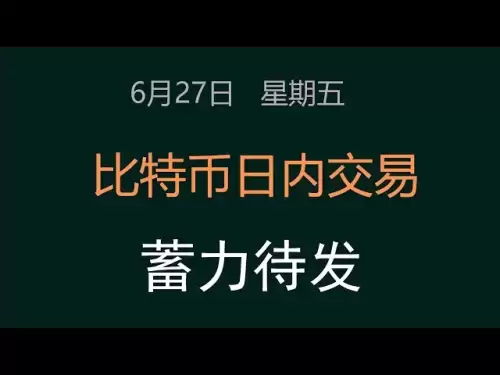 |
|
 |
|
 |
|
 |
|
 |
|
 |
|
 |
|
 |
|
 |
|
 |
|
 |
|
 |
|
 |
|
 |
|
 |
|
加密貨幣新聞文章
The U.S. Is Building a Bitcoin Reserve to Secure Its Position as the Crypto Superpower
2025/04/30 15:24

The U.S. is quickly setting its sights on becoming a leader in the crypto space. But this time, it’s not just about innovation or regulation—it’s about building a national Bitcoin reserve.
Yes, the U.S. is getting serious on stacking sats at a government level. But why now? What’s pushing this sudden urgency, and how does it fit into a much bigger game plan unfolding behind the scenes?
A recent interview with Bitcoin Magazine with Bo Hines, Trump administration official and political advisor, shed light on this surprising initiative and the bold strategy the administration is pursuing to propel the U.S. to new heights in the age of digital assets.
Global Bitcoin Race Is On
In an interview with Bitcoin Magazine, Bo Hines compared the rush for Bitcoin by nations to a modern-day space race. He said countries are quickly trying to collect Bitcoin as a long-term asset, and the U.S. wants to be at the forefront of this endeavor.
To do that, the government is setting up what might be called the Strategic Bitcoin Reserve and working quickly with the U.S. Treasury to audit any Bitcoin the country already holds and to begin buying more—without any impact on the national budget or on the government’s spending activity.
Hines said the goal is to take immediate action and use smart strategies that can be expanded over time.
The idea is gaining support from top tech voices like Crypto Czar David Sacks, who is ready to rally support for the initiative. With Sacks’s influence and the Treasury’s backing, Hines believes the U.S. can become the leader in Bitcoin adoption, mining and setting clear regulations for the crypto industry.
These efforts will support Donald Trump’s larger plan for digital assets, which is to make the United States the “crypto capital of the world.”
Trump’s Vision For Bitcoin Superpower
Hines explained that Trump wants the U.S. to be the first country to be known as “the Bitcoin superpower of the world.” He also called Bitcoin “digital gold,” something that is very rare, valuable and likely to become even stronger over time.
Hines added that Trump’s goal is to create an optimal environment for crypto firms and to ensure they can operate smoothly and efficiently in the U.S. without excessive burdens or red tape.
This aligns with the administration’s broader focus on rolling back regulations and fostering a more favorable business climate.
Executive Orders & Major Policy Shifts
To support this vision, several steps are already being taken during Trump’s first 100 days in office. One of the major moves is an executive order that will be used to phase out what is known as “Operation Chokepoint 2.0.”
This administration initiative is being credited with putting pressure on banks to cut ties with crypto firms. Many believe the move was part of a broader attempt by the Obama administration to target specific industries and groups.
Along with that, the SEC will be dropping some of its major lawsuits and U.S. banking regulators will begin to ease their rules on crypto firms.
These changes are being made in response to the growing interest in cryptocurrencies and the role they are expected to play in the future of finance.
The administration is also planning to take a fresh look at the controversial Payday lending rules, which were finalized in 2013 by the Obama administration.
These rules, still in place today, were designed to impose strict requirements on small-dollar lenders and to prevent them from making multiple installment loans.
However, they were met with fierce opposition from industry groups, who argued that they would drastically limit access to credit for low-income borrowers and ultimately backfire.
Now, with the Trump administration focused on slashing red tape and deregulating industries, it appears that these Payday lending rules are on the agenda for a significant overhaul.
This shift in priorities could have a major impact on the small-dollar lending industry, which has been operating in a new, heavily regulated landscape since the Dodd-Frank Wall Street Reform and Consumer Protection Act was passed in 2010.
After the financial crisis, Congress passed Dodd-Frank to create new regulations for the financial industry and to prevent another economic downturn.
The law also granted the Consumer Financial Protection Bureau (CFPB) broad authority to regulate consumer financial products and services.
In 2013, the CFPB finalized its Payday, Title IV, and Installment Credit rules, setting forth stringent regulations for small-dollar lenders.
These rules were designed to limit the ability of lenders to make multiple installment loans and to ensure that lenders fully assess a borrower’s ability to repay a loan before it’s funded.
The Payday rule was specifically focused on preventing lenders from making a series of small-dollar loans, known as “payday loans,” that are typically due on the borrower’s next pay cycle.
These types of loans usually come with high interest rates and fees,
免責聲明:info@kdj.com
所提供的資訊並非交易建議。 kDJ.com對任何基於本文提供的資訊進行的投資不承擔任何責任。加密貨幣波動性較大,建議您充分研究後謹慎投資!
如果您認為本網站使用的內容侵犯了您的版權,請立即聯絡我們(info@kdj.com),我們將及時刪除。
-

- 皇后鎮科技超級充電:未來的一瞥
- 2025-06-28 00:30:12
- 皇后鎮將自己定位為技術樞紐,吸引了全球平台並支持本地公司。什麼是關鍵趨勢和見解?
-

-

- 香港的標記證券:鏈革命?
- 2025-06-28 01:30:12
- 香港正在以令牌化證券空間的發展。讓我們研究最新的發展,重點是GF證券的鍊鍊計劃和更廣泛的監管格局。
-

-

-

-

-

-



























































